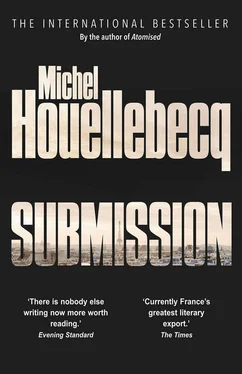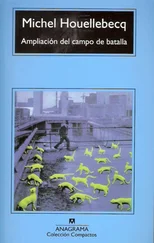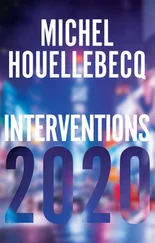‘I’m not Nietzsche.’
‘No, you’re not. But you’re you — and you’re interesting. And if you’ll forgive me for being blunt, I want you on my team. I might as well put my cards on the table, since you already know why you’re here: I want to convince you to come back and teach at the Sorbonne. I want you to work for me.’
At that moment the door opened, just in time to save me from having to answer. It was a plump woman, perhaps forty years old, with a kind face, carrying a tray of warm canapés arranged around an ice bucket. This held the promised bottle of Meursault.
‘That’s my first wife, Malika,’ he said once she’d left. ‘You seem to be meeting all my wives today. I married her when I was still living in Belgium … Yes, my family’s Belgian. So am I, for that matter. I was never naturalised, though I’ve lived here for twenty years.’
The canapés were delicious, spicy but not too; I tasted coriander. And the wine was sublime. ‘I don’t think people talk enough about Meursault!’ I said, with gusto. ‘Meursault is a synthesis. It’s like a lot of wines in one, don’t you think?’ I wanted to talk about anything besides my future as an academic, but I wasn’t kidding myself. I knew he’d return to the subject at hand.
After a decent interval of silence, he returned to the subject at hand. ‘I’m so glad it worked out with the Pléiade edition. It’s the obvious thing, the right thing — well, it’s a good thing all round. When Lacoue mentioned it to me, what could I tell him? I said you’d be the natural choice, the right choice, and that you happened to be the best choice, too. Now, I’ll be perfectly frank with you: apart from Gignac, I haven’t managed to enlist any faculty who are truly respected, who have real international reputations. It’s hardly a disaster, the university just opened. But the fact is, I want something from you and I haven’t got much to offer you in return. That is, I can offer you plenty of money, as you know, and money isn’t nothing. But from an intellectual standpoint, a teaching position at the Sorbonne is much less prestigious than editing a Pléiade. I know that. What I can promise is that nothing would be allowed to interfere with your real work. That’s a personal promise. No hard classes, just a couple of first- and second-year lectures. No dissertations to advise — I know what those are like, I’ve done enough of them myself. I’d arrange everything with the department.’
He stopped there. I got the distinct feeling that he’d used up his first round of arguments. He tasted the Meursault, I poured myself a second glass. It occurred to me that I had never felt so desirable . Glory had been a long time coming. Maybe my dissertation really had been as brilliant as he claimed, the truth was I remembered almost nothing about it; the intellectual leaps I made when I was young were a distant memory to me, and now I was surrounded by a kind of aura , when really my only goal in life was to do a little reading and get into bed at four in the afternoon with a packet of cigarettes and a bottle of whisky; and yet, at the same time, I had to admit, I was going to die if I kept that up — I was going to die fast, unhappy and alone. And did I really want to die fast, unhappy and alone? In the end, only kind of.
I finished my wine and poured myself a third glass. Through the bay window, I watched the sun setting over the arena. The silence became a little bit embarrassing. Well, if he wanted to put his cards on the table , two could play at that game.
‘There’s a condition, though …’ I said, cautiously. ‘And it isn’t trivial …’
He gave a slow nod of the head.
‘You think … You think I’m someone who could actually convert to Islam?’
He gazed at the floor, as if lost in intense personal reflections, then he looked me in the eye. ‘I do.’
The smile he gave me was luminous, innocent. It was the second time he’d graced me with it, so it came as slightly less of a shock. But still, his smile was awfully effective. At least now it was his turn to talk. I swallowed two lukewarm canapés in quick succession. The sun vanished behind the terraced steps; night washed over the arena. It was amazing to think that fights between gladiators and wild beasts had actually taken place here, two thousand years before.
‘You aren’t Catholic, are you? That could be a problem.’
No, in fact; I couldn’t say that I was.
‘And I don’t think you’re really an atheist, either. True atheists are rare.’
‘Really? On the contrary, I’d have said that most people in the Western world are atheists.’
‘Only on the surface, it seems to me. The only true atheists I’ve ever met were people in revolt . It wasn’t enough for them to coldly deny the existence of God — they had to refuse it, like Bakunin: “Even if God existed, it would be necessary to abolish Him.” They were atheists like Kirilov in The Possessed . They rejected God because they wanted to put man in his place. They were humanists, with lofty ideas about human liberty, human dignity. I don’t suppose you recognise yourself in this description.’
No, in fact, I didn’t; even the word humanism made me want to vomit, but that might have been the canapés. I’d overdone it on the canapés. I took another glass of the Meursault to settle my stomach.
‘The fact is, most people live their lives without worrying too much about these supposedly philosophical questions. They think about them only when they’re facing some kind of tragedy — a serious illness, the death of a loved one. At least, that’s how it is in the West; in the rest of the world people die and kill in the name of these very questions, they wage bloody wars over them, and they have since the dawn of time. These metaphysical questions are exactly what men fight over, not market shares or who gets to hunt where. Even in the West, atheism has no solid basis. When I talk to people about God, I always start by lending them a book on astronomy …’
‘Your photos really are very beautiful.’
‘Yes, the beauty of the universe is striking, but the sheer size of it is what staggers the mind. You have hundreds of billions of galaxies, each made up of hundreds of billions of stars, some of them billions of light years — hundreds of billions of billions of kilometres — apart. And if you pull back far enough, to a scale of a billion light years, an order begins to emerge. The galaxy clusters are distributed according to a vast cosmic graph. If you go up to a hundred people in the street and lay out these scientific facts, how many will have the nerve to argue that the whole thing was created by chance ? Besides, the universe is relatively young — fifteen billion years old at the most. It’s like the famous monkey and the typewriter: How long would it take a chimpanzee, typing at random, to rewrite Shakespeare’s plays? Well, how long would it take blind chance to reconstruct the universe? A lot more than fifteen billion years … And I’m not just speaking for the man in the street. The greatest scientists have thought so, too. In all of human history there may never have been a mind as brilliant as Isaac Newton’s — just think what an amazing, unheard-of intellectual effort it took to discover a single law that accounted for the fall of earthly bodies and the movement of the planets! Well, Newton believed in God. He was such a firm believer that he spent the last years of his life writing an exegesis of the Bible — the one sacred text that was really available to him. Einstein wasn’t an atheist, either. The exact nature of his belief is harder to define, but when he told Bohr, “God does not play dice with the universe,” he didn’t mean it as a joke. To him it was inconceivable that the universe should be ruled by chance. The argument of the “watchmaker God”, which Voltaire considered irrefutable, is just as strong today as it was in the eighteenth century. If anything, it’s become even more pertinent as science has drawn closer and closer connections between astrophysics and the motion of particles. At the end of the day, isn’t there something ridiculous about some puny creature, living on an anonymous planet, in a remote spur of an ordinary galaxy, standing up on his hind legs and announcing, “God does not exist”? But forgive me, I’m rambling on …’
Читать дальше







